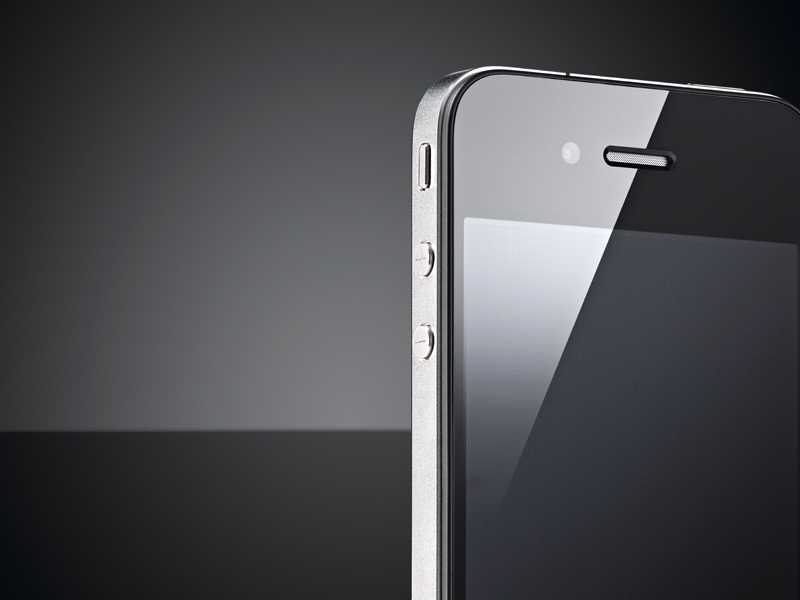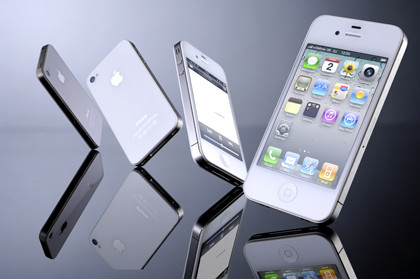Which iPhone should you buy?
How to choose an iPhone and get the best deal for you

Sign up for breaking news, reviews, opinion, top tech deals, and more.
You are now subscribed
Your newsletter sign-up was successful
Whether you're looking to buy the new iPhone 4S or an older Apple handset, the huge array of tariffs on contract, pay monthly and pay as you go (PAYG) can be bewildering.
But help is at hand; we'll help you decide which handset is right for you, and take you through the best tariffs for your needs. Whether you mostly make calls, send texts or use the internet, there's something for you.
It's always tempting to go for the very latest handset, of course, and the iPhone 4S is very desirable indeed. However, you will pay dearly for the privilege of owning one of these state-of-the-art phones. So it's worth asking yourself whether you actually need one over the now-cheaper iPhone 4 or 3GS.
Indeed, the iPhone 4 and the iPhone 3GS are extremely popular mobiles, and if image is important to you, it's worth remembering that the iPhone 4 does actually look almost exactly the same as the iPhone 4S!
Apple has now released an 8GB version of the iPhone 4 to provide a lower-priced alternative to the iPhone 4S, and it has stopped producing the older 16GB and 32GB versions (though you might still be able to get a phone with one of those capacities if you're lucky).
It did the same with the 3GS last year, though it was something of a surprise that the 3GS was kept on this time into a third year of production. It does, though, now provide a much cheaper option, and it's available for free on a great deal of contract tariffs.
All three of the currently available iPhones can run iOS 5, so it's only the older 3G and original iPhone models that are excluded from this update. It's sadly the case that since the release of the iPhone 4, the networks have continued a trend they started previously, cutting down on the amount of included data and call minutes within monthly tariff allowances for new iPhone contracts.
Sign up for breaking news, reviews, opinion, top tech deals, and more.
With Vodafone, for example, 1GB of data allowance on last year's iPhone 4 £35 tariff has now become 500MB on the iPhone 4S £36 tariff. However, that's not to say there aren't contracts around that can provide all you need - and we'll help you shop around to find the right one for you.
If you have older iPhone accessories, support can be patchy for newly bought iPhones unless they have the Made for iPhone logo. This even goes for older Apple docks, although the dock connectors on all iPhones are the same (Apple USB to dock connector cables, for example, are no problem).
Some iPhone 3G and 3GS accessories are suitable for use with the iPhone 4 and 4S - ones that have dock connectors but aren't flush to the phone's casing - but cases and the like certainly aren't; the newer iPhones are a completely different size. Nearly all accessories designed for the iPhone 4 are compatible with the iPhone 4S - though be careful with very fitted cases.
Now we've whetted your appetite, let's get on with finding the right iPhone and deal for you.
Contract
You'll need to think about the length of contract you take out. Shorter contracts usually carry a higher cost for the phone. 24 months is the norm, but then you might want to consider…
When will the next iPhone be out? We'd expect the next iPhone to be announced in late autumn 2012, and if that turns out to be right, you won't be able to get it straight away if you take out a long contract on a new phone now.
SIM-only
If you can afford it, buying a handset outright to start with and then getting a cheaper monthly tariff can save you money in the long term. These iPhones are also unlocked if you buy them from Apple, meaning that you can use them on any of the UK networks.
PAYG
Pay as you go is a good way of keeping track of your call and text costs, and can cost less than taking out a contract if you're a very light user, but this isn't always a good way of buying an iPhone - you'll pay a lot for data add-ons, and you'll also need to pay a large amount for the handset up front.
Choosing a network
Not all the networks offer exactly the same as each other. Some offer enhanced features on the iPhone, such as O2 with its Visual Voicemail support and tethering included in the data tariffs, which Three can also offer.
If you make a lot of calls, you'll obviously be more interested in call quality rather than data coverage, so that's worth considering. And then there's cost - some of the bigger networks charge more for their monthly tariffs. Choosing an iPhone: Which is the one for you?

iPhone 3GS: What it can do?
- Stores 8GB worth of music, apps, movies and more
- A compass and GPS for navigation and mapping
- A Multi-Touch 320×480, 3.5-inch display
- A three-megapixel camera with VGA video recording
- 802.11b/g Wi-Fi and 2G and 3G mobile networks
- Bluetooth 2.1 for headsets and wireless audio
- Personal Hotspot data sharing over USB and Bluetooth - only with supported networks
- Basic voice control
- Supports iOS 5 and iCloud
- Comes in black
The iPhone 4 adds…
- Faster A4 processor
- A high-resolution, 640×960 Retina display
- A front-facing camera for video calling
- A five-megapixel camera with 720p HD video recording and an LED flash
- Personal Hotspot over Wi-Fi
- Faster 802.11n Wi-Fi access
- Comes in black and white
And the iPhone 4S also adds…
- Faster dual-core A5 processor
- It's a world phone that works on CDMA as well as 3G and 2G networks
- 16GB, 32GB or 64GB worth of music, apps, movies and more
- An eight-megapixel camera with 1080p HD video recording
- Siri digital assistant
- Bluetooth 4.0 with Bluetooth
- Low Energy capability
- 1
- 2
Current page: Which iPhone should you buy?
Next Page Choosing a contract: questions to ask yourselfDan (Twitter, Google+) is TechRadar's Former Deputy Editor and is now in charge at our sister site T3.com. Covering all things computing, internet and mobile he's a seasoned regular at major tech shows such as CES, IFA and Mobile World Congress. Dan has also been a tech expert for many outlets including BBC Radio 4, 5Live and the World Service, The Sun and ITV News.